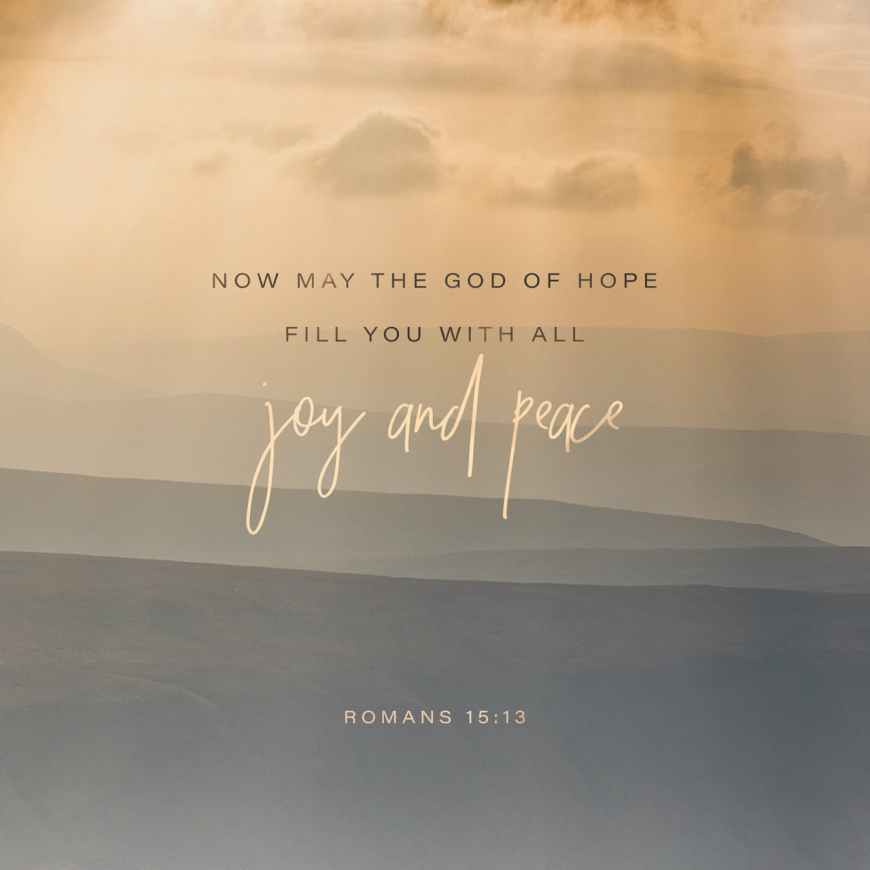“Now may the God of hope fill you with all joy and peace in believing, so that you will abound in hope by the power of the Holy Spirit.”
Romans 15:13 NASB
https://www.bible.com/100/rom.15.13.nasb
- Hope is the expectation of the future attainment of a desired object or outcome. It is often associated with trust, whether in God or others.
- God, Himself is the hope. God is the founder and planner of hope.
- Living in hope will fill (overflowing) joy and peace in our hearts.
- Everyone needs hope.
- Holy Spirit is the reservoir of hope to those who believe and trust in God.
- Hope is looking to the future – it’s Gods future. (N.T. Wright)
- God’s future is the resurrection of Jesus Christ.
- Enemies of hope => fear, anxiety, failure, disappointments, money, material things, defeats. Friends of Hope => joy, peace, trust in God’s restoration.
- Anything in the world disconnected from God can lead to losing hope. E.g., money, skills and talents, family, even trusting on the ‘good things’ received from God.
- Context: Paul encourages the community of believers in Roman to practice “Hope” amidst their ongoing chaos and uncertainty due to loss, persecution and doubts.
In Hebrew, hope is expressed most commonly with the verbs קָוָה (qāwâ, “to wait”) and יָחַל (yāḥal, “to wait”) and nouns related to these. The verb qāwâ conveys a sense of waiting with expectation, while yāḥal may indicate waiting for a period of time with or without expectation. For example, Noah waited (yāḥal) seven days before sending the dove out from the ark the second and third times (Gen 8:10, 12), but the hired worker waits for (qāwâ) his wages with the expectation of receiving them (Job 7:2). The aspect of hopeful expectation is intensified for both verbs when they are directed toward an assured outcome or object. In the Psalms and Prophets, the two verbs are usually directed toward God and express the act of waiting expectantly for, or hoping in, God. As abstract nouns, both תִּקְוָה (tiqwâ, “hope”) and תּוֹחֶלֶת (tôḥelet, “hope”) refer to the expectation of a desired outcome at the end of a period of waiting. Less frequently used is the verb שָׂבַר (śābar, “to hope”), which conveys more of a sense of expectancy rather than waiting. The noun כֶּסֶל (kesel, “confidence”) carries the primary semantic meaning of trust or confidence. The vocabulary of hope is found most frequently in the OT in the books of Job, Psalms, Isaiah, and Jeremiah.
Fenlason, A. C. (2014). Hope. D. Mangum, D. R. Brown, R. Klippenstein, & R. Hurst (Eds.), Lexham Theological Wordbook. Bellingham, WA: Lexham Press.
